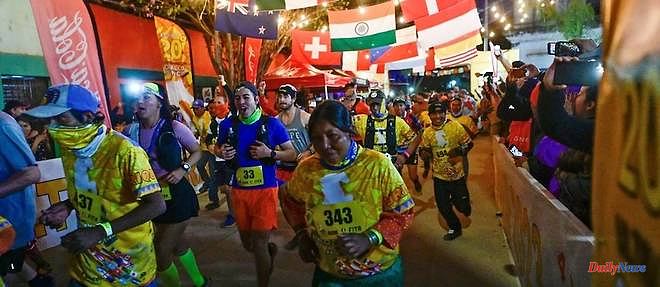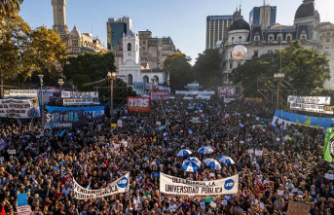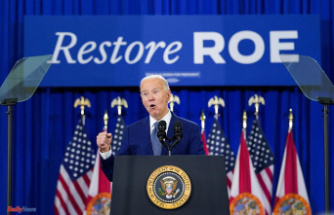They set off at dawn on Sunday to attack the deep canyons of the Sierra Tarahumara in northwestern Mexico, for one of the most grueling, original and generous ultra-marathons in the world.
Over 80, 40 and 21 km, several hundred Mexican and foreign amateur athletes - especially the United States - compete against long-distance runners from the local Raramuri communities, known for their legendary endurance.
By their cardiovascular condition, the men and women of the Tarahumara are the "Spartans of our time", wrote in a scientific journal an American cardiologist, Dale Groom, in 1971, estimating at the time their population between 30,000 to 50,000 people (figures still current).
Arriving a few days before the race, the foreigners tried to break the ice with the Raramuris in the village of Urique, which lies at the bottom of the deepest "barranca" (gorge or canyon) in Mexico (1,800 m) .
"It's much more than a race. The spirit consists in sharing, in exchanging between cultures", affirms Fabio Meraz, responsible for local tourism.
David Stoltzfus came from Pennsylvania to participate in "his first 50 miles" (80 km): "It's hard. I don't know any more," says the young American.
The night before the race, most of the foreigners slept in hotels or lodges, and the Raramuri in a camp on the banks of the Urique river which flows at the bottom of the Barranca.
The difference doesn't end there. The Raramuris ("light feet" in their language) rushed off for the most part wearing their simple traditional sandals attached by straps to the calves (huarache).
"I'm used to these huaraches. I hardly use tennis. My feet don't get used to them," said half-marathon participant Irma Chavez.
The women run in their long, brightly colored dresses, while the men wear loose white underpants that flutter in the wind.
On Saturday, many raramuris, most of them looking intimidated, came to pick up their bibs on the eve of the race.
The ultra-marathon is also a social work at the service of their community affected by global warming. Participants will be rewarded with food vouchers.
"With this race, we try to bring some prosperity to the Tarahumara people. That is why we distribute tons of food and corn seed among the natives who complete the course, in addition to sums of money for those who will rank among the first", indicated the announcer of the organization between two "rancheras" (traditional songs).
There are "crop losses" for these people who live from growing corn in the folds of the Sierra, laments a Raramuri professor, Martin Chavez: "The rain is rare. It comes late when the corn plantations die because of the heat. We no longer see the snows that once fell on our Sierra Tarahumara".
“Families sometimes cannot feed themselves with what they grow,” adds her daughter, Irma Chavez.
The local police and the army discreetly ensure the good atmosphere of the rally, palpable during the dance and music festival on Saturday evening. A few kilometers from Urique, in Cerocahui, two Jesuits were killed as well as a tourist guide in June. The alleged killer is still at large.
“We are not leaving,” proclaims one of the Sierra Jesuits, Father Javier Avila, pointing to a hospital serving the Raramuri community in Creel, a three-hour drive from Urique.
The Caballo blanco ("White Horse") Ultra-marathon owes its name to its founder, Micah True, an American lover of the great outdoors who launched the race in 2003.
His story and his encounter with the Sierra Tarahumara has been told in a book, "Born to run" ("Born to run"), by Christopher McDougall.
Micah True, who died in 2012, felt "a kind of connection with this people and this land: to live simply, to share, to be good, to do good", explains one of his friends, Michael Miller.
"Sharing is real wealth. There's a lot of that in the Raramuri culture that he identified with," adds Michael, who took over running the organization with his wife Kimberly. A statue in memory of Micah True (Michael Randall Hickman of his real name) was inaugurated Saturday evening in front of the town hall of Urique.
05/03/2023 16:21:46 - Urique (Mexico) (AFP) - © 2023 AFP












